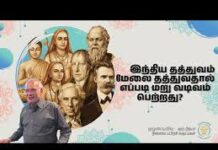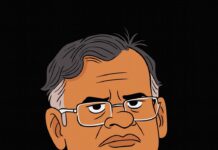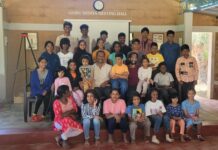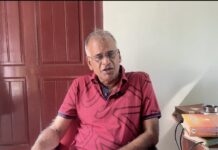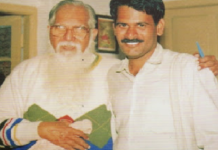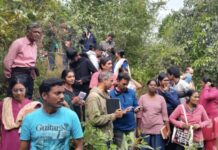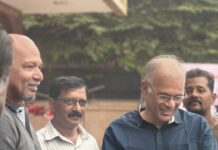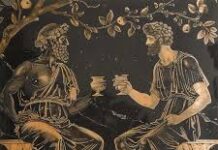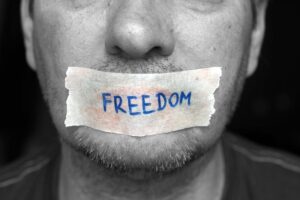
I had gone to Malaysia with some friends a few years ago. We saw the city of Penang and we planned to visit some Chinese places of worship en route to Kuala Lumpur. My friend, Lawyer Krishnan had prepared an elaborate travel plan starting from India. When we told this to our Malaysian driver, he replied with alarm, ‘No sir, I will not come. There is a highway from Penang to Malaysia, I will take that route alone.’ We asked him ‘Why? The purpose of our trip is do sight seeing in these areas, isn’t it?’. He replied, ‘No, you have not applied for a permit for that’.
‘Ok fine, we will apply for a permit, how do we do that?’, we asked. The driver said we can apply for a permit at the tourist center in Malaysia. We submitted the required documents and got the permit issued. Even then, the driver and his two Malaysian friends were panicky throughout the trip. One of them spoke to several people managing the administration in Malaysia over the phone, finally returned with relief and agreed to come with us.
‘What happened?’, I asked. He had spoken to somebody in the senior leadership of the Malaysian government and he had been advised by that office to make an entry of our passport numbers at all the places we were visiting and to write a note that they had merely accompanied us.
It was surprising. I asked him ‘Why are you so afraid?’. ‘All the trips that we make get recorded somewhere or the other. The question of why we deviated from the usual route can be asked anytime. We need to have documented proof as to why we did that. It is dangerous otherwise’, the friend replied.
My friend Krishnan mumbled when our car started moving – ‘Sir, only now I realize what democracy really means’. In India, we have travelled extensively. Once, we started from Chennai, travelled eight thousand kilometers, went to Calcutta via Kashi and returned back to Chennai via Vishakapatnam. When we were exiting Chennai, a cop stopped us and checked our driver’s license and sent us on our way. When returning to Chennai around midnight, a cop stopped to inquire ‘Where are you coming from?’. Not a single check and nowhere were we stopped in between during the trip.
Even these small checks are only in the last twenty years. This awareness has started after the advent of terrorism. In my youth, I have started from my home and roamed around for months across India and then returned. Not once was I questioned. As a complete stranger, I have visited new villages, stayed with people at their homes, took up jobs and eaten food and then started from there. Welcoming strangers with hospitality and treating them as friends has been the culture of India. Even today, this is the mentality in most Indian villages. This mentality has been the bedrock of Indian democracy.
Having been born and brought up in a democratic country, we barely know what we have truly attained. We do not realize that freedom of movement is a rare treasure that is guaranteed in our constitution. Only when visiting our neighbouring countries that do not have democracy, we see how each and every individual is closely monitored by their governments. We should have received a permit before we can make a public speech. Each and word of our speech will be documented. We should take responsibility for them. Whenever we are questioned, we should explain them.
In several countries, we can be arrested anytime without any question. In those countries, fear rests as an unbearable burden over each and every person. In Singapore, there is a national bird reserve. They had created a small forest and released lots of birds within it. There is a huge net in the sky that covers the entire forest. The birds can never fly out of the reserve. Singapore’s democracy and freedom is just like that. The sky is there; but it is out of limits.
There is no parallel in the entire world to the freedoms of speech, writing and thought that India has granted its citizens. Even in countries like France, America which forged and gave democracy to us, they do not have freedoms equaling India’s. Those who have visited those countries can understand this. Once when I was in America, I mentioned ‘bomb blast’ in the midst of a conversation. A friend nearby said with concern, ‘Please say gundu vedippu (bomb blast) in Tamil. There could be recording devices anywhere. They will catch us for this very phrase and question us.’
This freedom has been granted to us by our political forebears. Any freedom is also a great responsibility. A freedom is a rare tool as well. It become meaningful when we use it to critique ourselves thoroughly and use it to improve ourselves.
Our Indian society has multiple, complicated layers. Only when we speak frankly about it will we realize what problems exist within us. That is the reason our forefathers gave us the right to speak about anything.
This right is not a right to make speeches that causes self-destruction. It is not the right to infiltrate us with enemies of our nation and society.
In India today, freedom of speech and expression is construed as the right to make speeches that destroy India. This is nothing but a grave insult to the forefathers who gave us freedom of speech. Nothing causes graver destruction than a right exercised irresponsibly.
The elections are upon us. This is the time when all sorts of intellectual movements will take the stage and communicate their positions. Every day we hear a new voice with an opinion. It is essential that each and every one of them rings loudly. The sound of multiple voices speaking is essentially democracy. But if in their midst, if we find a voice that says ‘Death to India! Death to Indian society!’, we should realize that we have not upheld freedom of speech, but have in fact thrust a sword into the hearts of the forefathers who granted us that freedom. (2016)
Translated by Gogul
